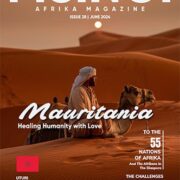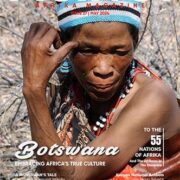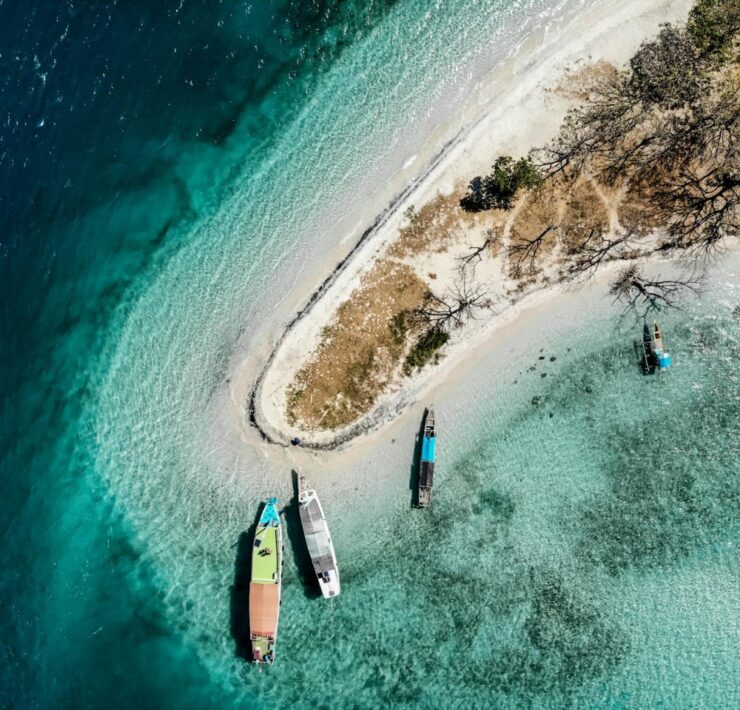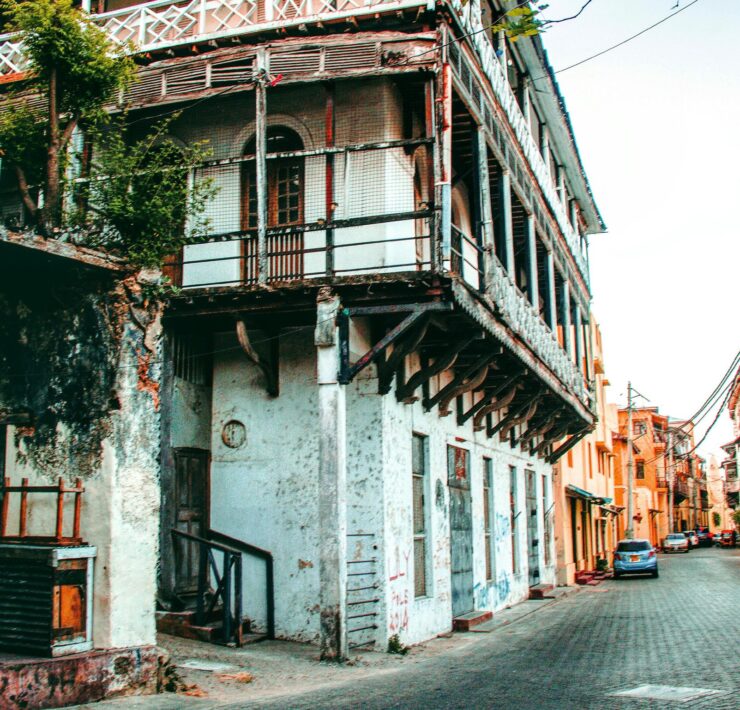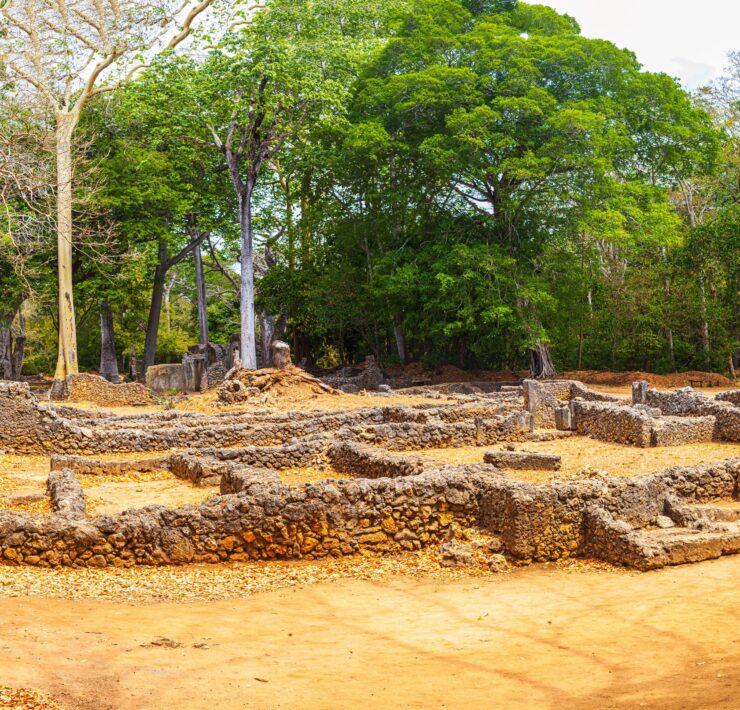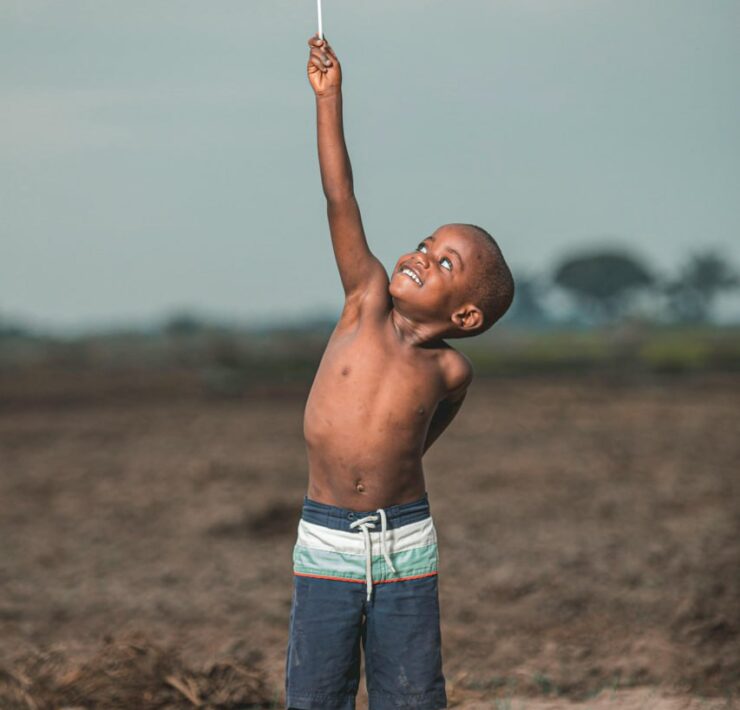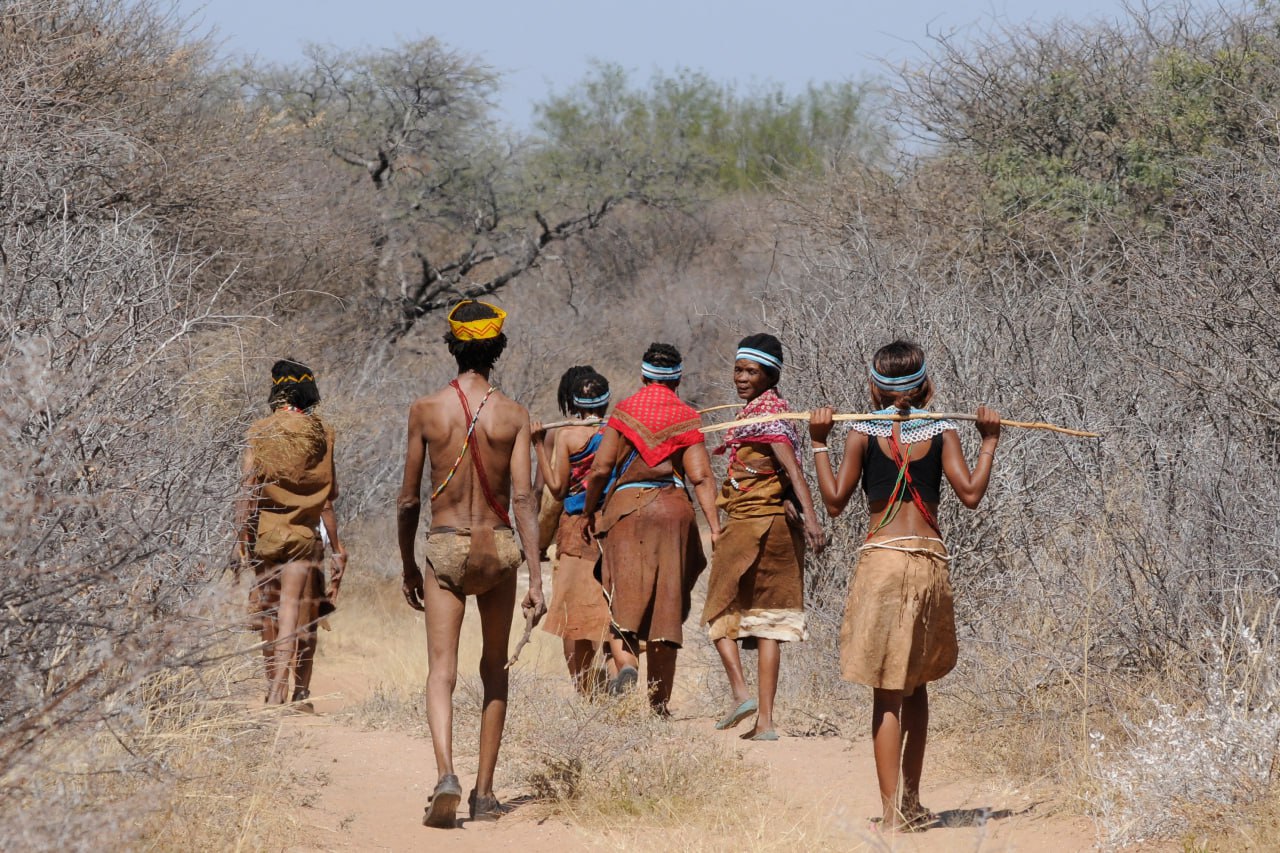
Samuel Phillips is a writer, graphic designer, photographer, songwriter, singer…
Read Next
Embracing the True Culture of Africa
Everywhere you go in Africa and every culture you meet in this beautiful continent and outside of it where there are people of African descent, even though the forms of cultural expressions are different in every African community, one thing that remains constant is the culture of life and the nurturing of life that Africans are known for. But before you start to think I am speaking of childbearing, let me quickly paint a picture of what I mean by the culture of life and nurturing of life.
Just like every indigenous culture in the world, especially before the monsters called capitalism and modernism came in, people and communities in Africa lived in harmony with themselves. They lived their daily lives conscious of the environment and also of the safety of indigenous wisdom and knowledge systems and how they are passed down to the next generation. This act of passing down indigenous wisdom and knowledge was of paramount importance to African elders and parents. Africans planted their crops, fished in the rivers or lakes around their ecosystems, built their homes, raised their families, traded among themselves, used the waterways for travels between places, etc., and all was done with a conscious connection to spirituality, the environment, life and the nurturing of life. It was ingrained in their minds. So, they created sacred spaces within their ecosystems that constantly reminded them that even though life will change as the community changes, life will always be about the interaction between the spirit and the physical. They lived in truth with this reality.
Embracing this reality of spirit and life, they maintained sacred spaces using the various spiritual knowledge and cultural antecedents passed down to them and by that kept the physical spaces. So, their culture helps them keep their environment and their environment helps them keep body, soul, and spirit together.
So, in one sentence, the true culture of the African people, irrespective of where they are globally, is that of life and the nurturing of life. And this is the reality of the name Africa and Alkebulan. Afrika is a combination of two words “Afuri” and “Ka” which means “the place of birth or the place of the soul”, while Alkebulan means “Mother of mankind”.
What this means is that Africans must return to the various aspects of their cultures that give strength to community life, a safe and healthy environment, good body health due to accurate eating of indigenous food, healthy lifestyles, the sanctity of sex, the spirituality around childbirth and true family life which is not corrupted by the foolishness called homosexuality. Anything that takes away this reality of giving life and nurturing life from the heart of any African is corruption and should be dealt with without mercy.
Beloved Botswana
Botswana is one country in Africa that still holds on to some of its core cultural practices. But, just like every country in Africa, the introduction of foreign religions and the foreign concept of modernity has reduced the embracing of some of these cultures. But there is still hope in our collective awakening as African people.
Village life and the Kgotla
Speaking about the cultures of the Botswana people, in the past, except for the semi-nomadic Bushmen, most other groups lived pastoral lifestyles in permanent settlements. Traditionally, these villages were located (for defensive reasons) in hilly regions, or around reliable water sources where grazing conditions were best. Homesteads, which consist of circular huts, built with reeds or mud, have grass roofs and are usually surrounded by a pole or reed fence. Communal eating places and smaller huts built for storage purposes are situated in the center of the village. Every family is entitled to land, where agricultural fields are planted, and there is a cattle post for keeping livestock.
The village heads or chiefs (kgosi) are responsible for looking after the affairs of the community. The kgotla, or traditional meeting place, is the most significant spot within any village. Recognized by all as a place of respect, it is always to be found in the middle of the village or under the largest tree.
Looking at the various aspects of the village life and the Kgotla of the Boswana people and how traditionally it was a way of enforcing a communal sense of life and living, it then begins to make sense that one way to break loose from the chokehold of current modernity and its many frustrating tentacles is to return to the ways and cultures of life that Africans are known for.
My prayer for you great people of Botswana is that you will stay true to the beauty and the reality of a life-giving spirit that you embody and through you, a much-awaited awakening of the African people to further embrace life will be manifested. ISE! AMEN!
Facts about Botswana
Source: https://www.gov.bw/about-our-country
Country Size
Botswana covers an area of 581,730km2 square kilometers.
Population
2, 292, 000 as per the last census (2011).
Capital City
Gaborone
Head Of State
His Excellency, Dr. Mokgweetsi Eric Keabetswe Masisi (5th President)
Geography
Botswana is a land-locked country dominated in geographical terms by the Kalahari Desert – a sand-filled basin averaging 1,100 meters above sea level. Botswana is bordered by Zambia and Zimbabwe to the northeast, Namibia to the north and west, and South Africa to the south and southeast.
In the northern part of Botswana, four countries (Zambia, Botswana, Zimbabwe, and Namibia) meet at a single point mid-stream of the Zambezi River.
The country lies between longitudes 20°C and 30°C degrees east of Greenwich Meridian and between the latitudes 18°C and 27°C approximately south of the Equator.
The country is situated in the Southern African region and about two-thirds of Botswana lies within the Tropics; it is bisected by the Tropic of Capricorn.
Climate And Seasons
Botswana’s climate is semi-arid though it is hot and dry for much of the year. The country experiences all the four seasons namely summer, autumn, winter and spring.
The summer season begins in November and ends in March, bringing with it temperatures that can sometimes reach a blistering 44°C.
The winter season begins in May and ends in August. Winter days are invariably sunny and cool to warm. However, evening and night temperatures can drop below freezing point in some areas especially in the southwest. Sometimes frost is common and small quantities of water can freeze. This is also the dry season when virtually no rainfall occurs. The in-between periods – April/early May and September/October – still tend to be dry, but the days are cooler than in summer and the nights are warmer than in winter.
Rainfall
Rain falls during summer, the peak falls are usually reached during the months of January and February.
People
Botswana has a number of tribes across the country, collectively known as Batswana. The official language is English and Setswana is the national language, although there are other spoken languages.
Government
The country follows a multi-party democracy and holds national elections every five years. The President is the head of the state and The Government comprises three arms being; Executive, Legislature and the Judiciary. Botswana follows dual legal system, combining Roman Dutch law with customary law.
Currency
Botswana’s unit of currency is the Pula (BWP), which is divided into 100 Thebe (t). Major credit cards, including VISA, MasterCard, American Express and Diners Club, are widely accepted.
Health
International Health certificate of vaccination for Yellow fever is required from travellers or through the countries which have been declared Yellow Fever Infected Areas.
Botswana has a five tier health system comprising of health post, clinic, primary hospital, district hospital and referral hospitals.
Consultation in public health facilities are subsidized, citizens pay BWP5 and non-citizens pay BWP50.
Media
The Daily News is the state-owned daily newspaper, published in Setswana and English and there are also independent newspapers published in Botswana.
Radio Botswana and Radio Botswana 2 – both state-owned, broadcast nationally. Private radio stations namely; Yarona, Duma, Gabz FM are also all available in most of major towns and villages in Botswana.
Botswana Television, a state owned media entity is available to over 90% of Botswana’s population. eBotswana is the only private television station in Botswana and is accessible in Gaborone (Capital City) and surrounding villages.
Communications
International dialing code is +267 and domain name is bw. The telecommunication market comprises of (three) (3) mobile operators and one fixed line operator. Wi-Fi connectivity through hotspots is available in major malls and airports.
Transport
Major areas (towns or villages) of the country are linked by road, rail and air with airports in Gaborone, Francistown, Kasane and Maun. The Public Highway Network stands at 18, 443, 8 km with about 7383.2 km of paved and 11060.6 km of unpaved roads.
About five (5) carriers (Air Botswana, Air Namibia, Ethiopian Airlines, South African air link and South African Express offer direct connections between Botswana, South Africa, Ethiopia and Namibia. The Botswana Railway runs a daily service between Francistown, Gaborone and Lobatse.
Major villages and towns can be accessed through public transport while ease of travel around town or major villages’ car hire services are available at a cost.
Tourism And Hospitality
About 42% of land mass reserved for conservation of its wildlife and it is covered by national parks and game reserves. Botswana has two (2) World Heritage sites listed by UNESCO, the Okavango Delta and Tsodilo Hills.
The industry is served by a network of hotels and lodges offering a range of services such accommodation, food and beverages, meetings and events, gaming, entertainment and recreation and tourism services. www.botswanatourism.co.bw.
Mining
Botswana has a vibrant mining sector and It is the largest contributor to the country’s economy and accounts for a quarter of the country’s GDP. The country is one of the largest producers of diamonds. Other minerals mined are nickel-copper, coal, soda ash, gold, silver, semi-precious stones, and granite.
Immigration
In the absence of specific bilateral agreements, all visitors entering Botswana must hold a passport that is valid for at least six months, except those with United Nations Convention travel documents.
All Citizens of Commonwealth countries do not require visas except those from Bangladesh Cameroon, Ghana, India, Nigeria, Pakistan, and Sri Lanka. Foreign nationals whose countries have signed a Visa Abolition Agreement with Botswana are also not required to apply for a visa. Valid entry visas for the countries that do require them may be obtained from Botswana’s various embassies and High Commissions abroad.
In countries where Botswana is not represented, visas may be obtained from the download fill scan, and sent. Entry visas obtained at border posts are valid for a maximum 14 days. Visitors are not allowed to stay in Botswana for more than 90 days in every calendar year. Extensions may be obtained from any Department of Immigration office in Botswana. About 42% of land mass reserved for conservation of its wildlife and it is covered by national parks and game reserves. Botswana has two (2) World Heritage sites listed by UNESCO, the Okavango Delta and Tsodilo Hills. The industry is served by a network of hotels and lodges offering a range of services such as accommodation, food and beverages, meetings and events, gaming, entertainment and recreation and tourism services.
Subscribe now for updates from Msingi Afrika Magazine!
Receive notifications about new issues, products and offers.
What's Your Reaction?
 PIN IT
PIN ITSamuel Phillips is a writer, graphic designer, photographer, songwriter, singer and a lover of God. As an Afrikan content creator, he is passionate about creating a better image and positive narrative about Afrika and Afrikans. He is a true Afrikan who believes that the true potential of Afrika and Afrikans can manifest through God and accurate collaborations between Afrikans. Afrika is the land of kings, emperors, original wisdom, ancient civilizations, great men and women and not some road-side-aid-begging poor third world continent that the world finds joy in undermining.








